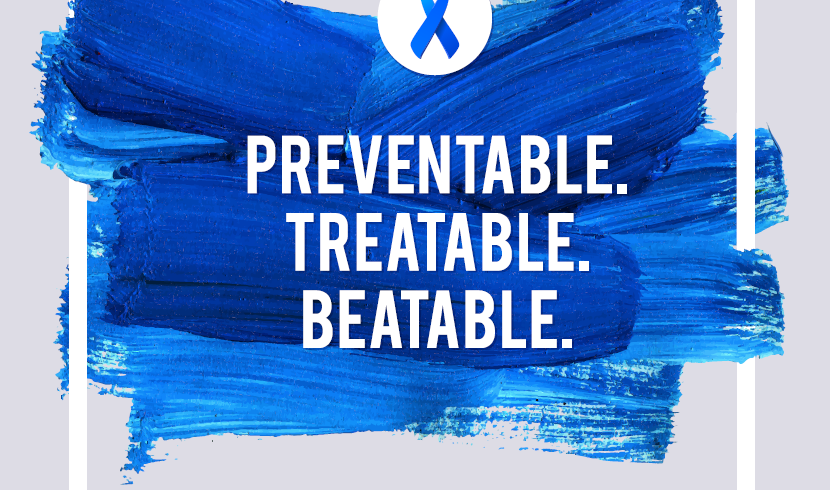“If you have the opportunity to prevent cancer or catch it early, why wouldn’t you?”
Death rates from colorectal cancer have been dropping, in both men and women, for more than 20 years, reports The American Cancer Society. As a result, there are now more than one million survivors of colorectal cancer in the United States. Yet the disease is still the third most common form of cancer diagnosed in the country today. An estimated 50,000 people will die from it this year.
Salvatore M. Buffa, M.D., a member of Premier Medical Group’s Gastroenterology Division, would like to see that number reduced to zero. “We know colonoscopies save lives because it gives us the ability to catch potential problems early,” he says. “With colonoscopy, we can remove adenomatous polyps before they become deadly. These are polyps that we know will become cancerous with time; we simply don’t know how long it might be before that happens.” Even when a cancer is found, Dr. Buffa adds, early detection and treatment is highly beneficial, yielding a five-year survival rate for 90 percent of patients with early stage cancers.
When should you be screened?
Guidelines recommend that patients with no family history of colon cancer or previous colorectal issues should begin regular screenings at age 50. Those with a negative initial screening should be screened again in seven to ten years.
For patients with a family history of colon cancer, however, the scenario is much different. “Those patients should have their first screening 10 to 15 years before the youngest age at which any family member was diagnosed with colon cancer,” Buffa explains. “That means if your parent (or other first degree relative) was diagnosed at 55, you should have your first colonoscopy at 40, no later than 45.” Patients with other risk factors, including Crohn’s disease or ulcerative colitis, are also advised to follow a more frequent screening schedule.
The risk of death from colon cancer, even in patients at higher than average risk, is reduced by more than 50 percent for those who have adenomatous polyps removed during a colonoscopy. Yet, many Americans still put off regular screenings because of the somewhat unpleasant nature of the procedure. “I understand that preparing for a colonoscopy is not pleasant,” Dr. Buffa says. “But it is a whole lot better than it was even 15 or 20 years ago. The taste of the cleansing drink that is required has improved, as has the anesthesia we use during the procedure itself.”
Even newer forms of testing, such as virtual colonoscopy (a 3D CAT scan image of the colon) do not eliminate the need for thorough test preparation. “You still have to do the bowel cleansing and, if polyps are discovered, a traditional colonoscopy will still be needed to remove them—which means you have to do the bowel cleansing again,” he says.
In addition to having regular colonoscopies, patients can reduce their risk of colon cancer by consuming a low-fat diet rich in fruits, vegetables and whole grains. Smoking, obesity, a sedentary lifestyle and excessive alcohol consumption increase risk of the disease. Thanks to increased awareness of the procedure’s life-saving benefits, discussing colonoscopy is not taboo in the way it once was. “We continue to work hard educating people so they are not afraid to talk about colonoscopies and colon cancer,” Dr. Buffa says. “Our annual Challenge Your Colon Chili Cook-Off is just one of the ways that we encourage awareness and have fun at the same time.”
Call Premier Medical Group’s GI Division today to schedule your screening colonoscopy #845.471.9410

